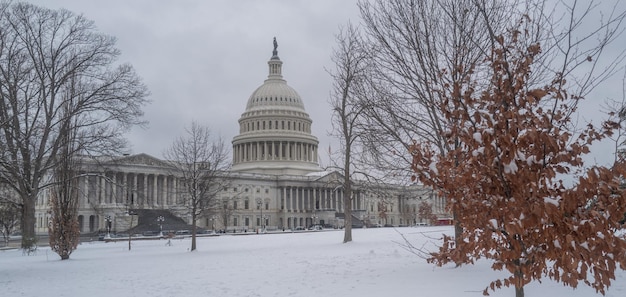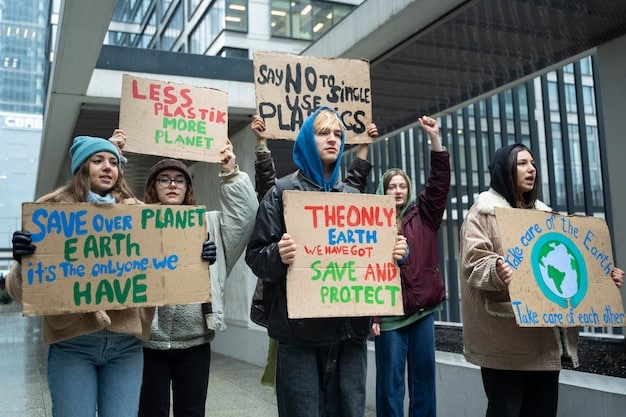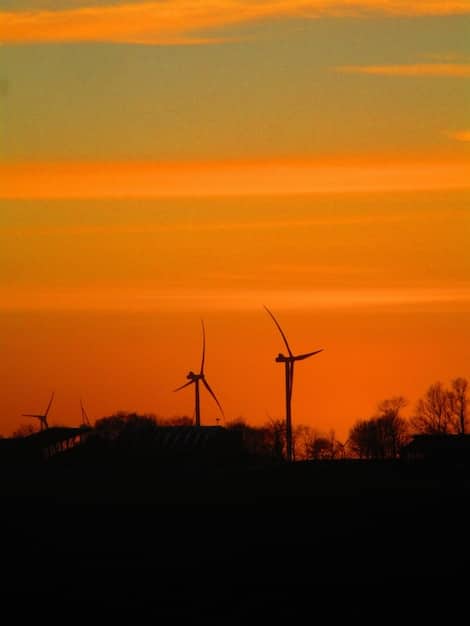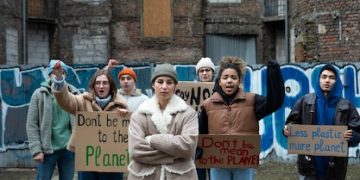Climate Change Impact on US Public Policy: An Analysis

Analyzing the Impact of Climate Change on Public Policy Debates in the United States reveals a shifting landscape where environmental concerns increasingly influence legislation, economic planning, and social priorities, prompting complex discussions on sustainability and responsibility.
The discourse surrounding climate change has profoundly reshaped public policy debates in the United States. Analyzing the Impact of Climate Change on Public Policy Debates in the United States requires a comprehensive examination of how scientific findings, public awareness, and political ideologies intersect to influence legislative agendas and societal priorities.
Understanding Climate Change as a Policy Driver
Climate change is no longer just an environmental concern; it’s a significant driver of public policy debates. The increasing frequency and intensity of extreme weather events, along with growing scientific consensus, have pushed climate change to the forefront of political discussions.
The Role of Scientific Evidence
The scientific community’s consistent findings on climate change provide a foundation for policy discussions. Reports from organizations like the Intergovernmental Panel on Climate Change (IPCC) offer comprehensive data that policymakers use to understand the scope and urgency of the issue.
Public Awareness and Activism
Heightened public awareness and activism play a crucial role in shaping policy agendas. Grassroots movements and advocacy groups work to raise awareness, lobby for climate-friendly legislation, and hold politicians accountable for their environmental stances.

Key aspects of this influence include:
- Increased media coverage of climate-related events.
- Growing support for renewable energy and sustainable practices among the general public.
- Activist campaigns targeting corporations and politicians to adopt more sustainable policies.
In conclusion, climate change has emerged as a prominent policy driver, propelled by scientific evidence and amplified by public awareness and activism, profoundly influencing policy debates in the United States.
The Economic Dimensions of Climate Policy
The economic implications of climate change are central to policy debates. Discussions often revolve around the costs of inaction versus the investments needed to transition to a low-carbon economy.
Carbon Pricing Mechanisms
One key debate centers on the implementation of carbon pricing mechanisms. These include carbon taxes and cap-and-trade systems, which aim to put a price on carbon emissions and incentivize businesses and individuals to reduce their carbon footprint.
Investment in Renewable Energy
Another significant economic consideration is the investment in renewable energy sources. Policies that promote solar, wind, and other renewable technologies are seen as vital for reducing greenhouse gas emissions and fostering a sustainable energy future.
Important economic considerations in climate policy include:
- The potential for job creation in the green energy sector.
- The economic impact of extreme weather events and natural disasters.
- The costs and benefits of transitioning from fossil fuels to renewable energy sources.
In essence, the economic dimensions of climate policy are multifaceted, encompassing debates over carbon pricing, renewable energy investments, and the overall financial implications of addressing climate change.
Climate Change and Energy Policy
Energy policy is intrinsically linked to climate change. The transition to cleaner energy sources is a central theme in legislative discussions aimed at mitigating the effects of climate change.
The Shift to Renewable Energy
Policymakers are increasingly focused on promoting renewable energy as a viable alternative to fossil fuels. This involves implementing policies that support the development, deployment, and integration of renewable energy technologies into the energy grid.
Energy Efficiency Standards
Another crucial aspect of energy policy is the establishment of energy efficiency standards. These standards aim to reduce energy consumption in buildings, appliances, and transportation, thereby lowering greenhouse gas emissions.

Key discussions in climate change and energy policy include:
- The role of government subsidies in promoting renewable energy.
- The impact of energy regulations on the fossil fuel industry.
- The development of smart grids to manage and distribute renewable energy more efficiently.
- The promotion of electric vehicles through incentives and infrastructure development.
Ultimately, climate change drives significant shifts in energy policy, prioritizing renewable energy and energy efficiency to reduce carbon emissions and foster a sustainable energy future.
The Role of International Agreements
International agreements play a pivotal role in shaping US climate policy debates. Treaties and commitments made on the global stage influence domestic policies and regulations.
The Paris Agreement
The Paris Agreement, a landmark international accord on climate change, has been a focal point in US policy discussions. The agreement sets a framework for countries to reduce greenhouse gas emissions and limit global warming.
International Cooperation
Beyond specific agreements, international cooperation is essential for addressing climate change. Sharing best practices, coordinating research efforts, and providing financial assistance to developing countries are all part of this collaborative effort.
Key aspects of international involvement include:
- The impact of international pressure on US climate policy decisions.
- The role of US leadership in global climate change initiatives.
- The cooperation with other nations to develop and implement climate solutions.
In summary, international agreements and global cooperation are vital in shaping climate policy debates in the US, influencing domestic actions and fostering a collective response to climate change.
Challenges and Obstacles in Policy Implementation
Despite growing awareness and support for climate action, significant challenges and obstacles hinder the implementation of effective policies. These challenges range from political opposition to economic and technological barriers.
Political Polarization
One of the most significant challenges is political polarization. Differing ideologies and partisan interests often impede the passage of comprehensive climate legislation. This polarization can lead to gridlock and inconsistent policy approaches.
Economic Concerns
Economic concerns also pose significant obstacles. The costs associated with transitioning to a low-carbon economy, as well as potential impacts on industries reliant on fossil fuels, can create resistance to policy changes. Balancing economic growth with environmental sustainability is a key challenge.
Challenges in implementing climate policy include:
- Lobbying efforts by industries opposed to climate regulations.
- Public skepticism and misinformation about climate change.
- Legal challenges to climate policies.
Technological Barriers
Many proposed climate solutions rely on technologies, such as carbon capture and storage, that are still in early stages of development. Scaling up these technologies and making them economically viable requires significant investment and innovation.
In conclusion, implementing effective climate policies faces considerable challenges, including political polarization, economic concerns, and technological barriers, which require innovative solutions and broad societal support.
The Future of Climate Policy Debates
The future of climate policy debates in the United States will likely be shaped by several key trends. These include technological advancements, evolving public attitudes, and the increasing urgency of addressing climate change impacts.
Technological Innovation
Technological innovation will play a crucial role in shaping future policy discussions. The development of more efficient renewable energy technologies, carbon capture methods, and sustainable transportation options could transform the landscape of climate policy.
Evolving Public Attitudes
Public attitudes towards climate change are also likely to evolve. As more people experience the direct impacts of climate change, such as extreme weather events and rising sea levels, support for climate action may increase.
The key trends shaping future debates include:
- The integration of climate resilience into infrastructure planning.
- The adoption of circular economy principles to reduce waste and promote sustainability.
- The mainstreaming of environmental justice considerations in policy decisions.
The conversation around climate change continues to evolve, and to remain productive, it demands that the latest scientific guidance is integrated into every level of discussion related to it.
| Key Point | Brief Description |
|---|---|
| 🔥 Policy Driver | Climate change drives policy due to extreme weather and scientific consensus. |
| 💰 Economic Impact | Economic policies consider the costs of inaction vs. investments in green tech. |
| ⚡ Energy Policy | Transition to clean energy and energy efficiency standards are prioritized. |
| 🌍 International Agreements | Global accords like the Paris Agreement shape US climate policy debates. |
Frequently Asked Questions
▼
The primary driver is the increasing awareness of climate change impacts, supported by scientific evidence and public concern over extreme weather events. This pushes policymakers to address climate change more proactively.
▼
Economic considerations influence policies by weighing the costs of climate action against inaction. Discussions often focus on creating green jobs and managing the economic transition away from fossil fuels.
▼
Renewable energy is central to US climate policy, with initiatives promoting solar, wind, and other clean sources to reduce emissions and achieve energy sustainability. Policies support the development and adoption of renewable technologies.
▼
International agreements, like the Paris Agreement, influence US policy by setting global standards and encouraging cooperation. They prompt domestic actions to align with international climate goals and commitments.
▼
Key obstacles include political polarization, which hampers legislative progress, economic concerns about transition costs, and technological barriers in scaling up climate solutions. Public skepticism also poses a challenge.
Conclusion
Analyzing the Impact of Climate Change on Public Policy Debates in the United States reveals a complex interplay of environmental concerns, economic considerations, and political ideologies, shaping the trajectory of climate action in the nation. The continuous evolution of public attitudes and technological advancements suggests a future where climate policy debates will remain at the forefront, driving innovation and policy reforms.





